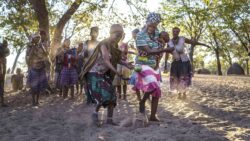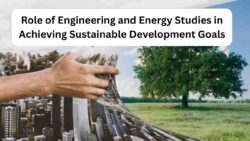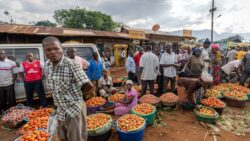Higher education can be life-changing — it opens doors to employment, leadership, and innovation. Yet for many people in Africa, especially those from disadvantaged backgrounds, pursuing higher studies remains an unattainable dream. The cost of education, social inequalities, and regional disparities often keep talented individuals from realizing their potential.

The Africa Regional International Staff / Student Exchange (ARISE II) programme was built with a clear vision: to make academic mobility and research opportunities more inclusive and equitable. One of its core priorities is to empower underrepresented and marginalized groups, helping them break through systemic barriers and become future leaders in key development sectors.
Removing Barriers to Education
ARISE II understands that access to education is not just about admission to a university. It involves removing many layers of disadvantage — financial, geographic, social, and cultural. That’s why the programme offers a range of supports to ensure fair access for all.
For students and staff from low-income families, ARISE II provides:
-
Full funding for travel, accommodation, and tuition
-
Monthly stipends for living expenses
-
Guidance and orientation for first-time travelers
-
Host support to ease adjustment in new institutions
-
Access to research facilities and academic mentorship
By taking care of these critical needs, the programme ensures that financial hardship is never a reason for missing out on education or research opportunities.
Importantly, the initiative is also open to students from remote areas, where educational infrastructure may be limited. ARISE II builds bridges between rural communities and world-class research environments, offering students the chance to contribute their unique perspectives to regional solutions.
Promoting Equity and Inclusion Across the Continent
Beyond financial and academic support, ARISE II promotes inclusion in a broader sense. It actively seeks the participation of:
-
Women and girls in STEM and research
-
First-generation college students
-
Scholars from historically disadvantaged communities
-
Students with disabilities
-
Individuals affected by conflict, displacement, or discrimination
The programme encourages partner institutions to follow inclusive policies in selection, onboarding, and support. Through training and awareness, ARISE II fosters environments where diversity is celebrated, and every scholar is given the tools to succeed.
This equity-based approach has produced powerful success stories. For example, students from communities without access to higher education have gone on to become researchers, educators, and policy advocates. Many return to their home regions to start local initiatives in agriculture, energy, or health — directly contributing to community upliftment.
Long-Term Impact: Education That Changes Lives
The effect of ARISE II’s support goes beyond individual careers. It creates ripple effects throughout families, communities, and countries. When a disadvantaged student gains higher education and international experience, they become an agent of change.
They bring back:
-
New ideas and technologies
-
Expanded networks for collaboration
-
The confidence to lead and mentor others
-
A deep commitment to equity and service
These qualities are exactly what Africa needs to meet the Sustainable Development Goals (SDGs) and create inclusive, knowledge-based economies.
In conclusion, ARISE II is not just a mobility programme — it’s a catalyst for social justice. By supporting disadvantaged groups and ensuring they can access and thrive in higher education, it is helping to build a more equal, empowered, and innovative Africa.




